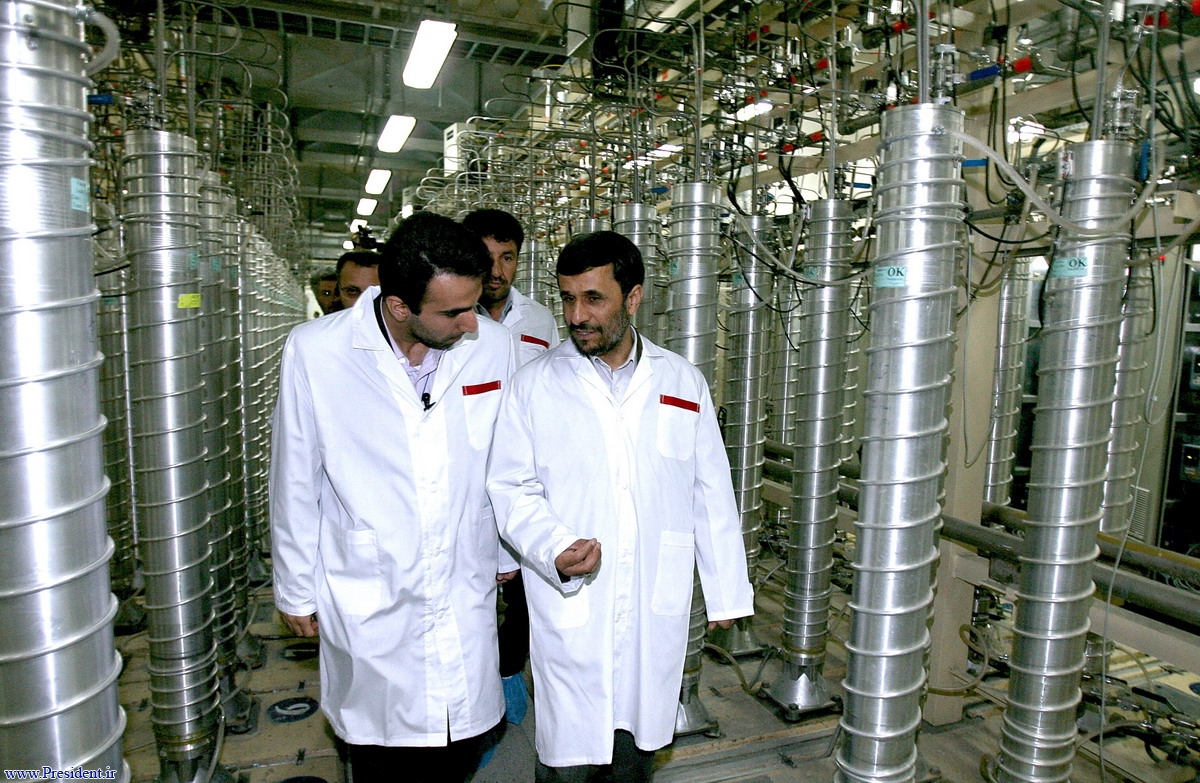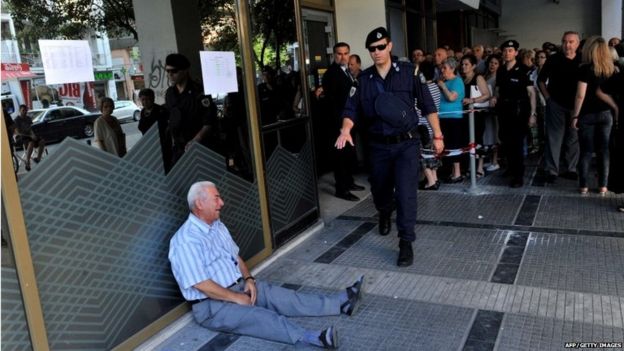In the news this past two weeks is the agreement between Iran and a group of five nations who have permanent seats on the UN Security Council (US, Great Britain, France, China, Russia) plus Germany regarding Iran's nuclear program.
Iran has long maintained it has a right as much as any nation to utilize nuclear energy for peaceful purposes, and maintain sovereign rights to privacy. The West in general and Israel in particular are opposed to Iran gaining such operational and technological expertise given Iran's track record of supporting extremist groups as well as publicly calling for the destruction of Israel and denying the Holocaust. In the end, it is the possibility of Iran developing nuclear weapons as an outcome of developing nuclear expertise and facilities that fuels the angst.
Iran, with a population of nearly 80 million - similar to Germany - has large oil reserves, substantial military power, and a history of aggressive actions towards its neighbors that coincides with the ascendency of its theocratic rulers. Graphic from www.quora.com
The ambitions of Iran since 1979 when the Islamists came to power, have always included a construction of a strong theocracy, hostility to the West, death to America, annihilation of Israel, and in general the aggrandizement of the nation as a regional if not global power by whatever means necessary.
The West, led by the US but in general throughout the European Union, has slapped harsh economic sanctions on Iran for defying calls for openness and transparency in regards to inspecting the country's supposedly peaceful nuclear infrastructure. Indeed, there is little disagreement that Iran has moved towards nuclear weapons with various secret programs, facilities, and general research trajectories that strongly point towards developing weapons grade nuclear material in spite of its denials. For an exhausting comprehensive timeline of Iran's nuclear ambitions and world reaction, go to www.iranintelligence.com/program-history
But here we are, the UN Security Council has endorsed the P5+1 deal with Iran, and sanctions may soon be ending. The agreement limits Iran's capabilities for another decade to build enough highly enriched material that could be used to make nuclear bombs, and allows inspections of facilities if so desired - all this in exchange for a removal of harsh sanctions that have crippled Iran's economy over the past several years. Critics of the agreement call it a disaster that will lead to Iran becoming a nuclear power over time, while proponents of the deal say it avoids the scenario of a future war to prevent Iran becoming another possessor of nuclear weapons ... kind of.
Negotiators lining up for the photo shoot as deal is reached. From left, EU foreign policy chief Federica Mogherini, Iranian Foreign Minister Mohammad Javad Zarif, French foreign minister Laurent Fabius, UK Foreign Secretary Philip Hammond, and US Secretary of State John Kerry. Photo from www.usnews.com
Key Agreement Points
Proponents of the deal say that the numbers of centrifuges Iran is allowed (items that can enrich nuclear fuel to a level that allows a nuclear bomb to be assembled) along with inspections slows any plans to create a bomb, giving nations time to slap sanctions back into place ... or take more forceful action. At the same time, the amount of enriched nuclear material Iran already has accumulated is to be greatly reduced, with the majority shipped out of the country.
One key and controversial component of the agreement is the ability of inspectors to enter nuclear sites to test and monitor the acceptable actions under the agreement as well as note any prohibited actions. The actual access procedures are long and complicated, a detailed review can be found here in a CBS news article. Some sites are well known and accessible while Iranian military sites where nuclear enrichment might be conducted are "negotiable."

Here, our old friend, Iranian ex-president and holocaust denier Mahmoud Ahmadinejad, talks with Iranian nuclear technicians in front of nuclear centrifuges which are at the heart of the inspection controversy. Photo from blog.nuclearsecrecy.com
Four ways to assess the results
Will Arab neighbors, in particular Saudi Arabia and its allies, begin to bulk up their own nuclear research, with the potential of a destabilizing regional arms race.
Will Israel be placated over the next year with new assurances of US support and defense.
Will Iran follow the agreement - inspections as requested/demanded by UN international inspectors. (Teatree remembers the long drawn out cat and mouse game played by Iraq's Saddam Hussein, and the hundreds of ways inspections were foiled.) And will the nearly month-long grace period between inspection demands and deadlines for compliance be effective.
Will a near-future removal of economic sanctions against Iran's rulers and businesses quickly turn into a boost for Iran's various proxy militias and dependent regimes (such as Hezbollah, Hamas, Assad's fragile Syrian regime, and for that matter, the Houthis in Yemen).
But the die is cast so to speak, and we will know more clearly by the end of 2015 whether this agreement has ceded power to an aggressive Islamic theocracy, or induced Iran into acting more constructively.

Iran's Supreme Leader Ayatollah Ali Khamenei, far from attempting to project a more positive image after the nuclear agreement, declared in a recent Reuters article "U.S. policies in the region were "180 degrees" opposed to Iran's, at a speech in a Tehran mosque punctuated by chants of "Death to America" and "Death to Israel". In this photo from news.yahoo.com, Khamenei greets his friend, Hamas leader Ismail Haniya
Future posts - we'll be leaving the world of woes behind for perhaps a year - and introduce ourselves to little outposts around the globe that are near the Arctic circle. Perhaps we can interweave a bit of climate change discussion into the stories.

Photo from Britannica.com





